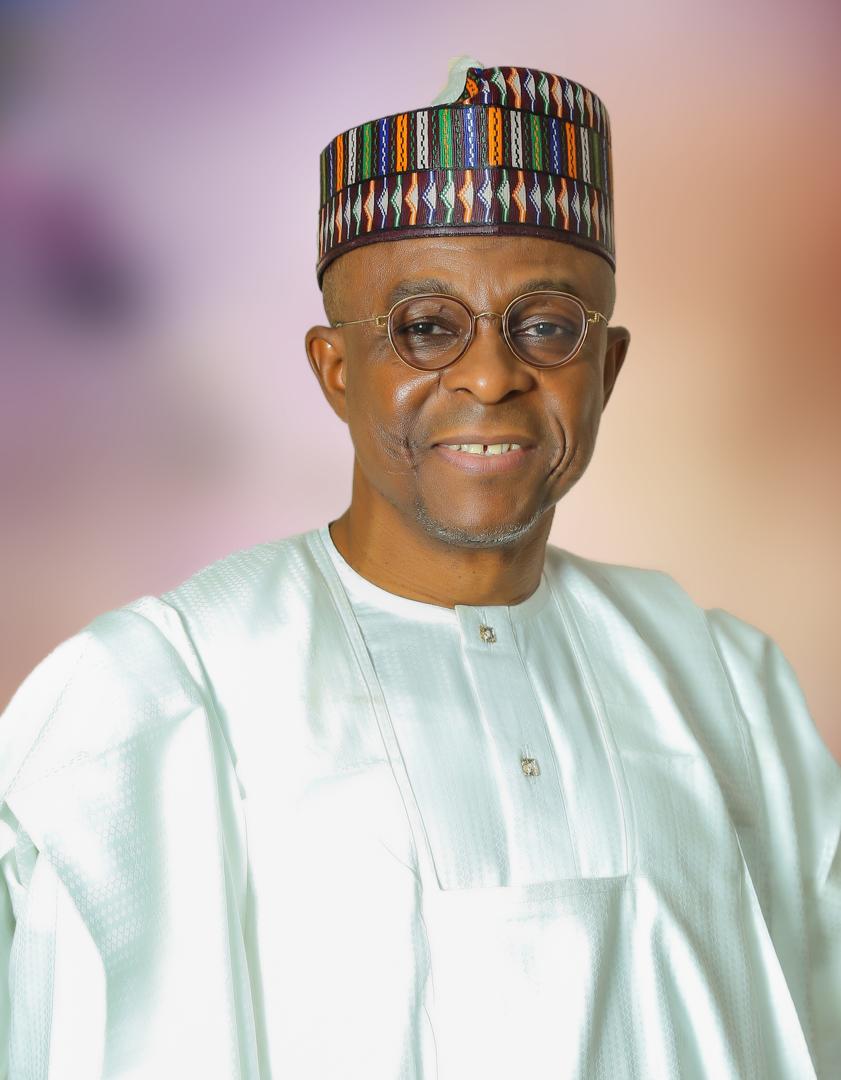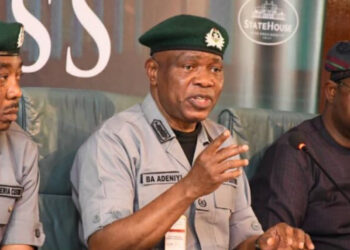
The recent election of Dr Abubakar Dantsoho as President of the Port Management Association of West and Central Africa (PMAWCA) is a proud moment for Nigeria and a significant milestone for the sub-region.
This historic achievement, marking the first time a Nigerian will head the 52-year-old association, is not just a badge of honour for the country, but a golden opportunity to address some of the long-standing issues that have plagued ports across West Africa.
With ports playing a central role in trade facilitation, economic growth, and regional integration, Dantsoho’s election couldn’t have come at a better time.
PMAWCA, which was established in 1972 under the Economic Commission for Africa (UNECA), is a crucial body overseeing ports in a region that spans over 12,000 kilometers of coastline and handles approximately 300 million tonnes of maritime trade annually, excluding crude oil. Yet, despite this significant footprint, the challenges faced by many West African ports have stifled their ability to compete globally.
For years, the ports in West Africa—particularly Anglophone countries, have lagged behind their Francophone and Lusophone counterparts in Central Africa in terms of infrastructure, service delivery, and operational efficiency.
This disparity is one of the critical issues Dantsoho’s leadership must address. His tenure presents a rare chance to re-position West African ports on the global stage as competitive, efficient, and modern hubs of trade.
The Need for Transformation
The sub-region’s ports face a myriad of challenges: inadequate infrastructure, low automation, inefficient cargo clearance processes, and poor connectivity to inland destinations. These problems contribute to higher logistics costs, longer turnaround times, and reduced competitiveness.
For instance, while ports in Angola and Côte d’Ivoire have embraced significant modernization efforts, many West African ports are still struggling with dredging, expansion, and digital transformation.
Dantsoho’s presidency of PMAWCA should focus on reversing this trend by championing initiatives that promote infrastructure development and operational efficiency. His leadership should prioritize bridging the gap between the more developed ports in other parts of the sub-region and those in West Africa that are still grappling with outdated facilities and practices.
Collaboration as a Catalyst
PMAWCA’s strength lies in its diverse membership, spanning Anglophone, Francophone, and Lusophone countries, with official languages in English, French, and Portuguese. While this diversity can sometimes pose a challenge to collaboration, it also provides a rich platform for knowledge exchange and shared solutions.
As President, Dantsoho must foster a culture of collaboration among member ports. This can be achieved through the creation of training programmes, workshops, and joint ventures that enable less-developed ports to learn from their more advanced counterparts. By sharing technical expertise, best practices, and innovative solutions, PMAWCA can drive collective progress and ensure that no port is left behind.
Service Quality as a Priority
Improving the quality of services offered by ports in West Africa is another critical area that requires urgent attention. Efficient ports are essential for reducing costs, cutting down on delays, and enhancing the overall trade environment. Dantsoho’s presidency must prioritize the standardization of port services across the region, ensuring that all member-ports align with international best practices.
Automation and digitalization are vital components of this transformation. Many ports in the sub-region still rely on manual processes, which are not only time-consuming, but also prone to errors and corruption. By advocating for the adoption of digital platforms for cargo handling, customs processes, and port management, Dantsoho can help improve transparency, efficiency, and customer satisfaction.
A Strategic Role for Nigeria
Dantsoho’s appointment is also an acknowledgment of Nigeria’s significant role in the maritime sector. As home to some of the busiest and most economically important ports in the region, Nigeria has made strides in modernizing its port operations through projects like the Lekki Deep Sea Port and the introduction of electronic call-up systems for truck management. However, there is still much work to be done, and Dantsoho’s leadership in PMAWCA provides a unique opportunity to leverage Nigeria’s experiences for the benefit of the entire sub-region.
Through his presidency, Dantsoho can serve as a bridge between Nigeria’s maritime reforms and PMAWCA’s broader objectives. By sharing Nigeria’s successes and lessons learned, he can inspire similar initiatives in other member countries while also drawing on the collective expertise of PMAWCA to address lingering challenges in Nigeria’s ports.
A Vision for Global Competitiveness
Ultimately, Dantsoho’s tenure must focus on positioning West African ports to compete not just within Africa, but on the global stage. This involves advocating for investments in deep-sea ports, modern container terminals, and improved hinterland connections. It also requires addressing regulatory bottlenecks and creating an enabling environment for public-private partnerships.
With the African Continental Free Trade Area (AfCFTA) creating new opportunities for intra-African trade, the importance of efficient and competitive ports cannot be overstated. Dantsoho has a unique chance to ensure that West African ports are prepared to meet the demands of increased trade flows and contribute meaningfully to the region’s economic growth.
Conclusion
Abubakar Dantsoho’s election as PMAWCA President is more than just a personal or national achievement; it is a call to action for the entire sub-region. His leadership represents an opportunity to tackle the systemic challenges that have held back West African ports for decades. By prioritizing infrastructure development, enhancing service quality, and fostering regional collaboration, Dantsoho can transform West African ports into engines of trade and development.
The task ahead is daunting, but with a clear vision, strategic partnerships, and unwavering commitment, Dantsoho can leave a lasting legacy; not just for Nigeria, but for the entire West African maritime sector. His success will not only elevate the status of West African ports, but also contribute significantly to the socio-economic development of the sub-region. The stakes are high, but so are the opportunities, and with Dantsoho at the helm, there is every reason to be optimistic about the future.















